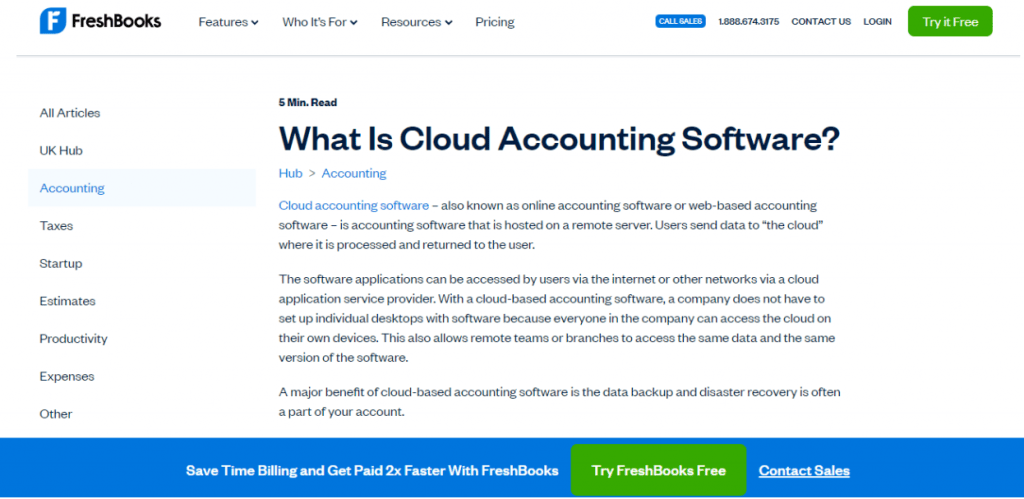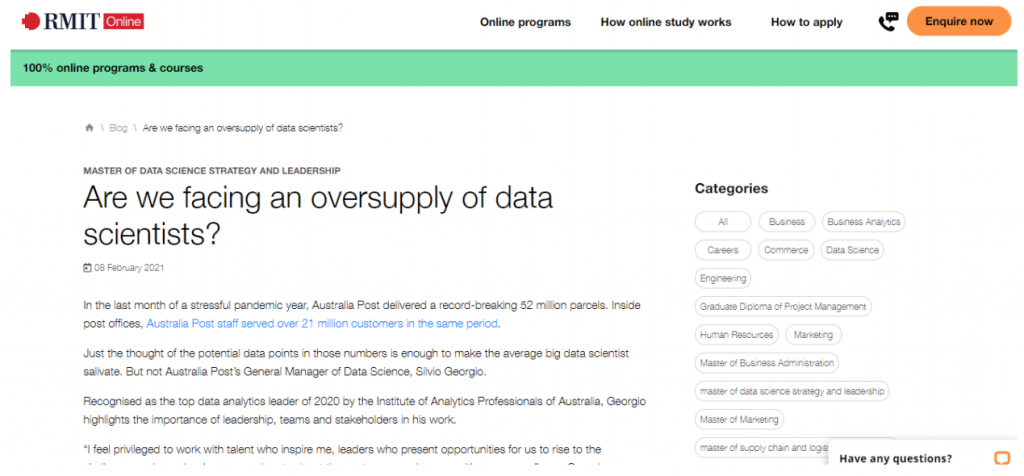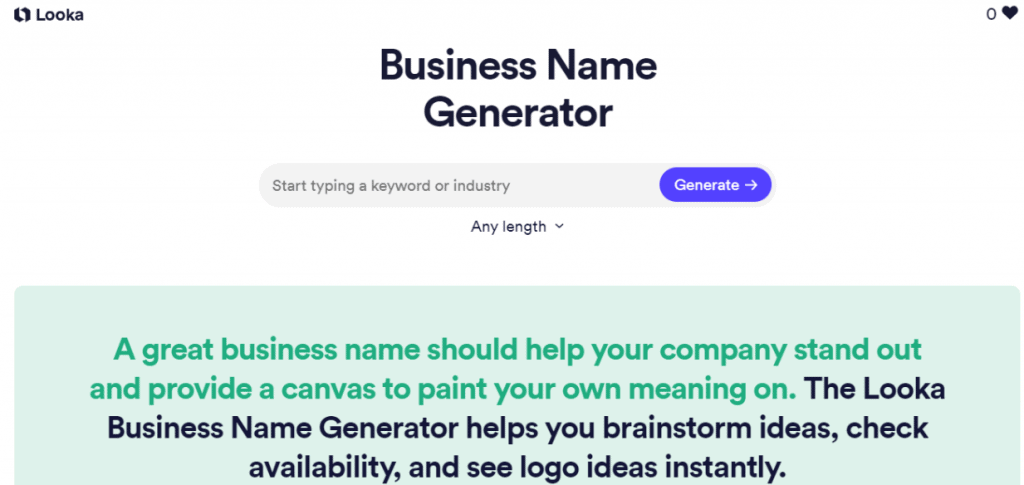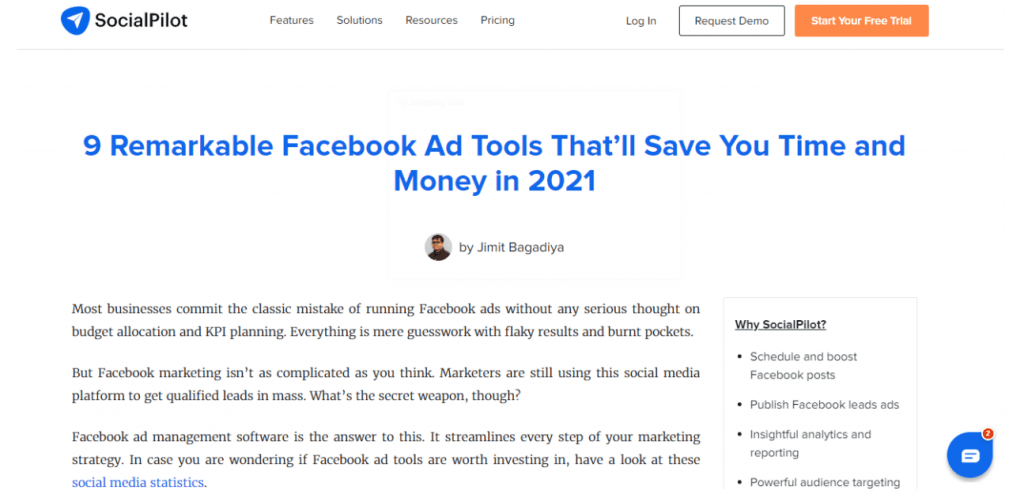It’s a very effective technique because it helps you optimize your website for search engines and also gets more traffic for your business. Having high-quality assets can make it much easier for you to build links, either manually through guest posting or organically. So, to get more results from your link-building process, you’ll need to focus on creating quality content that provides value for your audience.
In this article, we will look at five types of content you need to create if you want to earn more backlinks for your website.
Results of your own original research
Publishing original research is a great way to earn backlinks, as people will use your results to back up their points or inform their own content. To carry out your research, you can create online surveys, identify the audience you want for your research, and then send the survey to relevant participants so you can analyze the results.
You could also conduct experiments or observe existing data and patterns that are already available so you can come up with findings that your audience would find valuable.
Now let’s take a look at an example of a company that has published original research that provides a lot of value and is link-worthy.

Orbit Media Studios is a web design and development company and, on their website, they’ve published a great example of original research content. In the post, they talk about how they decided to highlight ten web design standards and then observe 50 marketing websites to see how common these design standards really are.
They go through each of these standards and write about their observations. And they also use pie charts to illustrate the results of this research. It’s a great example of the type of original research that other design sites would want to link to. And they could also get backlinks from marketing websites that might like to use their research as a reference.
You can also do something similar for your website by conducting your own research and highlighting your relevant findings that can inform the content of other sites in your niche. To make your research visually appealing, consider incorporating graphs or other illustrations to highlight your findings, too.
Content that answers FAQs about your work or industry
If you can create content that answers common questions, you could earn plenty of links as people will use this to back up points they’re making in their own articles. This means you need to come up with a list of questions that you can answer with your content. One way to do this is through keyword research.
To conduct keyword research, you want to use a specialist tool like the Ahrefs keyword explorer or Ubersuggest. You can then input specific words or terms that are common in your niche or industry.
These tools will give you a list of related keywords and search queries that are being entered into search engines by the people in your target audience. From here, you can start to craft topics based on the questions that you see people are asking.
Let’s study two examples of websites that have done a great job of creating content based on relevant FAQs. These posts are sure to earn a lot of backlinks.

FreshBooks is a company that provides an accounting solution for small and medium-sized businesses. As they are in the accounting industry, they know there might be some people who do not understand why they should use online accounting software for their business.
So, they’ve created a blog post to explain cloud accounting software. In the post, they talk about why a business might choose to use the software, its benefits, and the safety of their financial data. For people who might have queries or concerns about cloud-based accounting, this is a great post that the company has provided to answer most, if not all, of their questions.
It’s also a piece of content that a lot of other finance, budgeting, and business websites might link to as a helpful resource.

RMIT Online is a university that offers various online programs and degrees. On their blog, they have a post that addresses the question “are we facing an oversupply of data scientists?”. They talk about data science roles, the current landscape for data science graduates, and mention how a data science qualification can boost the career of prospective students.
This is a very detailed piece that uses statistics to discuss how viable data science is as a career path, and it also gives readers practical advice on why they should get a qualification in this area. It answers many FAQs about having a career in data science, and it’s also comprehensive enough that other sites may want to link to it in their content to bolster their points on the subject.
These are really great examples of the type of content you can create to answer FAQs about your industry. To ensure you’re providing real value, make sure you spend time performing keyword research to find topics that your audience is actually interested in.
Expert round-ups full of helpful advice
Expert round-ups are collections of quotes or advice from professionals in your field or industry. They’re great for link building, as they give a lot of advice at once, and the fact that the opinions come from a lot of experts will give the piece a sense of authority.
When you want to put together an expert round-up, you need to come up with a good topic, and one way to do that is by looking through social media forums where your target audience is present. For example, you could join forums like Reddit or Quora, search for relevant keywords, and look through the conversations people in your field are having.
Doing this will give you some good topic ideas. After selecting a topic, you need to pick the right people who will contribute to your expert round-up.
When you have your list of experts, you can start sending personalized pitches to them via email but make sure you keep it short and don’t be afraid to follow up if you don’t get a reply immediately. Sometimes, the second or third time can be the charm.
To improve your chances of getting a reply, you could follow your prospects on social media before reaching out via email. This helps you establish a relationship and gives you the chance to find specific details that could make your pitch more personalized.
After creating your expert round-up, make sure to promote it on social media and ask the people you featured to do the same. You can also let them know you’re happy for them to post a snippet on their website with a link back to the original piece on your site.
Interactive content that solves a common problem
Interactive content is great for engaging your audience and helping them solve a problem, but it can take a lot of time and effort to create. This means, if you’re able to create high-quality interactive content, like a quiz, calculator, or polls, other businesses and publications might use them and be happy to provide you with a link.
To give you a practical example, let’s look at a business that has done an excellent job creating interactive content for its audience.

Looka is an online logo maker. And, on their website, they’ve also created an interactive business name generator that visitors can use to create names for their brand. The tool is very interactive, easy to use, and it also helps you search for the domain availability of the name you’ve chosen.
The tool seems simple, but it provides a lot of value for people who need help with selecting a brand name. This means many websites or blogs would be willing to link to it to help people in their audience get a unique business name. You can also emulate this technique by creating an interactive quiz, poll, or tool to help solve a relevant pain point for the people in your niche.
Buying guides and comparison round-ups
Product round-ups or buying guides are content pieces that compare similar items or services to help readers choose the best option to suit their needs. These can attract many links as, if someone is recommending a particular solution but doesn’t want to endorse a specific product or service, they can provide a link to a round-up with several options.
Here’s an example of an effective comparison piece that can give you some inspiration.

SocialPilot, a social media marketing platform, helps people manage their presence on various social media platforms. On their blog, they have a comparison piece that looks at Facebook advertising tools that can save you time and money.
The article compares nine remarkable tools that people can use for Facebook advertising, and it does this by highlighting the pros and cons of each tool. Many marketing blogs would want to link to this post for their readers as it’s very detailed and can help people make better decisions on what tool to invest in.
It’s a great idea to do something similar for your website, but make sure that you adopt a clear and neutral tone when comparing products, especially if yours will be part of the mix.
Summary
If you want to get more backlinks for your website, you need to stop putting out mediocre content. Instead, you should be aiming for high-quality and link-worthy content that can get you noticed by other sites.
We’ve outlined examples of those content types in this guide, and some of them include original research, expert round-ups, buying guides, and interactive content. Once you’re able to start creating valuable content like this, you’ll be on your way to earning high-quality and authoritative links for your website.
Author bio:
Adam Steele is COO and co-founder of Loganix, which is an SEO fulfillment partner for digital marketing agencies and professionals. The company provides the SEO services that businesses need to grow and achieve their goals. If you enjoyed this article, you can find more SEO guides and templates on the Loganix blog.


Comments are closed.